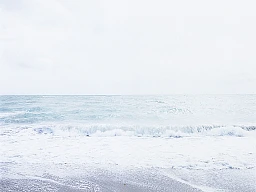Whatever we have (Swiss Stories 2014, by Marco Frauchiger) - Swiss Press Award

Der Bund
Marco Frauchiger
«Whatever we have» Time/place of creation The work was created in March and April 2012 in Florida. It was then selected, edited, compiled, and supplemented with short texts between August and December. This year the work was nominated for the 2013 Bern Photo Prize and exhibited at the Kornhausforum in Bern. It was published in a small volume on November 2nd. Short description The resulting work «Whatever we have» deals with the everyday struggles from the perspective of selected protagonists in Florida. The photographs show a reality far away from the beaches. People live there who are constantly short of money, for example for food or to take the bus back home, or even just to find a place to stay overnight. I work with stories about everyday situations. I am interested in the everyday behind the scenes, the unseen. I found the people I tracked down for my work on highways, in shopping malls, or in motels. They openly revealed their sometimes tragic situations to me. In conversations, I discovered the stories and the melancholy of loneliness that dominates my counterpart's everyday life. Lack of money sometimes leads to social exclusion. Some of the people presented in the work were happy to share their stories with me, but didn't want to be portrayed. I felt they should still find a place in my work and, for this purpose, use representative images that directly relate to the protagonists. In this sense, these images can be understood as portraits of the protagonists' situations. Each image is accompanied by short texts written in the original English, which highlight a section of the problematic theme. Anecdotes from the socially marginalized provinces are recounted. The short texts are in English to make the closeness to the protagonists more tangible. Most of the photographs shown were taken in the hinterland of southern Florida and hardly evoke a sunny feeling. The work is a concentrated and functions coherently, but as a work, it is not exhaustive. As an observer and mediator, I want to make a section accessible to the viewer, presenting my perception without judgment. The respective portraits create a feeling for their situation and are representative of many that I met and portrayed in the course of my project. It is also intended to shed light on the personal state of each protagonist. I would like to give the viewer a glimpse into the backyard of the sunny USA, to people who tend to move on the fringes of society and who often fail in their day-to-day struggles. However, I do not want to give a hasty answer to the problem, but rather raise questions that should be asked. Short texts: 01 I met a hotel receptionist. He lives and works in Miami Beach and hasn't seen the ocean for two years. 02 Cleaning up, after a beach day, Fontainebleau Hotel 03 Raymond doesn't have a job. He spent his last money for the bus to get to Florida City for a job offer. It wasn't a success, but he wasn't surprised about the bad news. It often happens to people who are looking for low-wage jobs. Especially in hard times like these days. Whatever. Raymondʼs walks back where he had come from with all his belongings in a baby-cart. 04 Angel is 53 years old and has an accurate look, a beard and glasses. He lives underneath a trailer. He is seeking a job for months. 05 Glenn is searching for a leak in the pipe in the motel yard. He does casual employment. Employees like Glenn work on demand, an irregular and infrequent income. Because these workers doesn't work regularly, they usually don't receive benefits like worker's compensation, disability allowance, health insurance or a company retirement plan. Sometimes Glenn gets some money from his brother which he really appreciates. He helps the motel owner with repair works in return to free lodging. 06 Own grown tomatoes out of the pool instead of guest having a bath in the motel pool. 07 Every Friday we serve food to the hungry people. They get what ever we have, says Mavis Witter Project Manager of a Food Bank in South Florida. But even here people always come late. 08 The last shuttle. 09 Jim, a former police officer, says many jobs were lost in Titusville, close to Cape Canaveral, since the NASA canceled the space shuttle program. Many people moved away. It seems like they have to expect heavy seas ahead. 10 Now Jim keeps an eye on the plants in this empty mall. Miracle City Mall, Titusville
